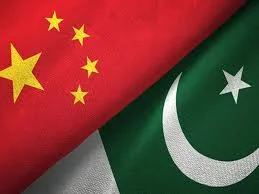Islamabad, Mar 3, 2025: The yearly meetings of the Chinese People’s Political Consultative Conference (CPPCC) and the National People’s Congress (NPC), known as China’s Two Sessions, will provide a strong basis for future development of Pakistan-China relations.
In an interview with APP here on Monday, Muhammad Zamir Assadi, a Research Fellow at the China International Press and Communication Centre, made this claim.He emphasized that Pakistan stands to benefit greatly from the new economic prospects arising from the debates and resolutions of these two crucial meetings as China pursues its vision of shared prosperity.
Assadi pointed out that strengthening economic cooperation will depend heavily on the China-Pakistan Economic Corridor’s (CPEC) continued development, especially its second phase.“China’s leadership has established a strong commitment to consolidation economic ties with Pakistan, recognizingPakistan’s strategic importance as a key partner in the Belt and Road Inventiveness (BRI).”
He added, “There will be a surge of Chinese investments into Pakistan with the second phase of CPEC focusing on industrial cooperation, agriculture, energy, and infrastructure, which will further strengthen the economic ties between our two countries.
The two sessions will also emphasize the significance of collaboration in the digital economy, green energy, and high-tech industries, industries that are anticipated to draw Chinese investments and introduce cutting-edge technologies to Pakistan.
Assisting the nation in overcoming its obstacles to development and quickening its industrial expansion. He said that Chinese companies will probably engage in Pakistan’s high-tech sectors, renewable energy, and major infrastructure projects with the help of the government.
Pakistan’s businesses would gain from this expanding collaboration, which will also assist the country’s standing in the international market by transferring knowledge and skills. He went on to say that by enhancing connectivity, trade channels, and access to international markets, the outcomes of the two sessions will have a long-term effect on Pakistan’s economy.
In addition to promoting mutual growth, this enhanced cooperation will support regional stability and economic integration.”Pakistan’s involvement in CPEC and the wider BRI framework will open up new avenues of economic opportunity for our country,” Assadi emphasized.
With more investments, improved industrial cooperation, and broader commercial links, the future appears bright. The results of the two sessions will further increase the importance of the CPEC project and cement Pakistan’s position as a crucial link in the global supply chain.
In conclusion, China’s Two Sessions 2025 herald the beginning of a new era in Pakistan-China ties, one that will see greater Chinese investment, faster economic cooperation, and the full potential of the China-Pakistan Economic Corridor (CPEC).



